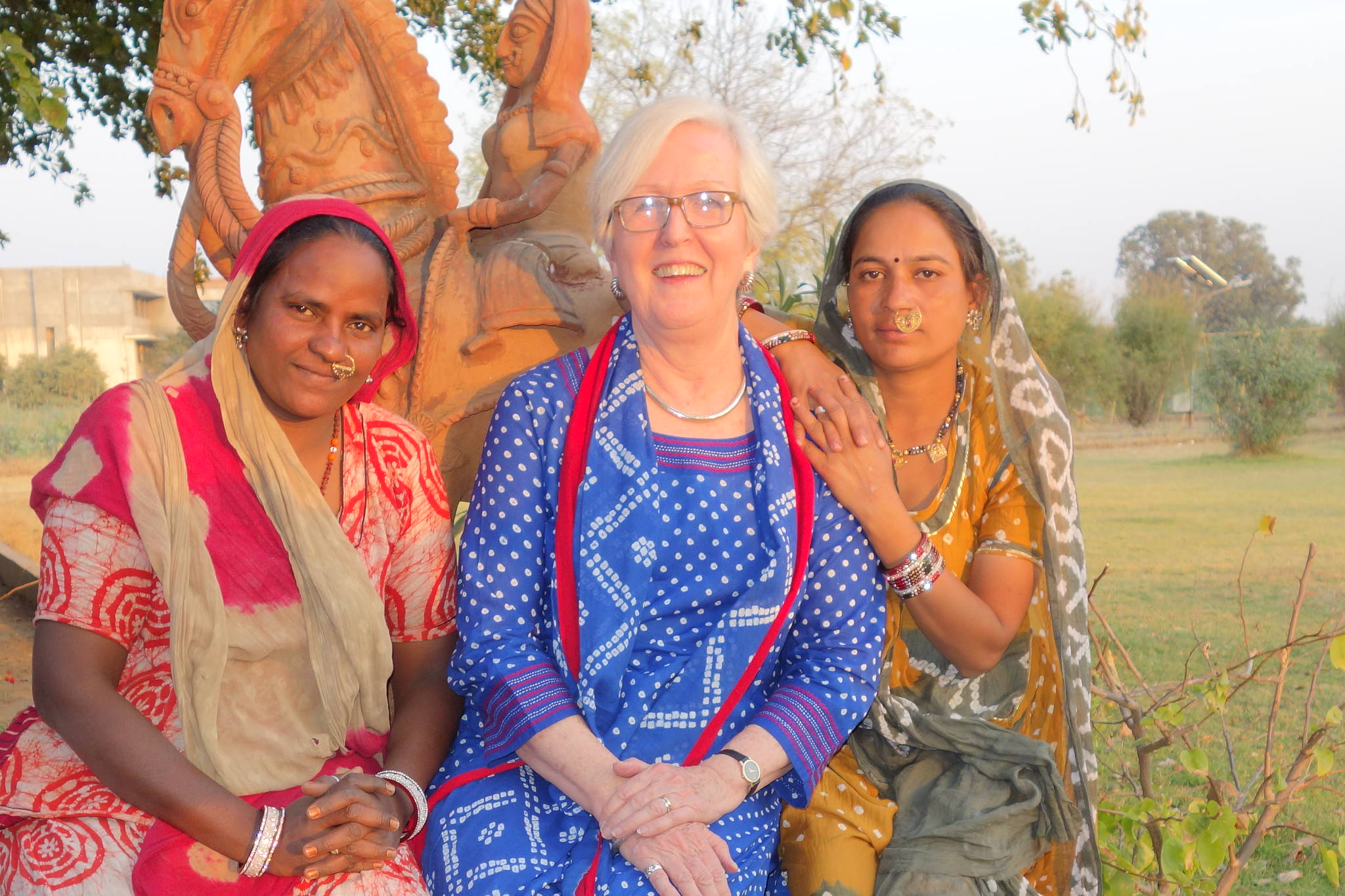
As countries across South Asia and the globe went into strict lockdowns during the pandemic, millions of informal workers – from roadside vegetable vendors to informal garbage collectors – were left without work or income and with little savings to fall back on. Now, as the world slowly gets up and running again, one organization, Women in Informal Employment Globalizing and Organizing (WIEGO), co-founded by Marty Chen, Adjunct Lecturer in Public Policy, Harvard Kennedy School, is focused on ensuring a more equitable economic future for all. WIEGO recently received a $25-million grant from the Ford Foundation to help make this happen.
The Mittal Institute sat down with Marty, who is also part of the Institute’s Steering Committee and Cabinet, to learn more about this new grant, the work of WIEGO, and Marty’s own remarkable life journey growing up as part of a missionary family in India, spending decades working for BRAC in Bangladesh, and eventually landing at Harvard. Listen to the full conversation (right), or read an excerpted conversation (below).
Mittal Institute: Thanks so much for joining us, Marty! Could start by telling us about WIEGO and its mission?
Marty Chen: Thank you so much; I’d be happy to. WIEGO, the acronym, is for Women in Informal Employment: Globalizing and Organizing. The founders of WIEGO coined that phrase because it captured what we were seeking to highlight and to address. WIEGO is a global action-research-policy network that seeks to empower the working poor in the informal economy, especially women, to secure stronger livelihoods and better incomes by changing the policy and legal environment. And we believe that this can be done through what we call the three “V’s.” One is increasing the voice of informal workers through organization and representation. The second is visibility. And that is visibility in official statistics, and official policymaking circles with informed understanding. And the third is, for the sake of a third “V,” validity, which is that these workers should be seen as valid economic agents. They should be valued for their contributions, rather than stigmatized and penalized as they tend to be.
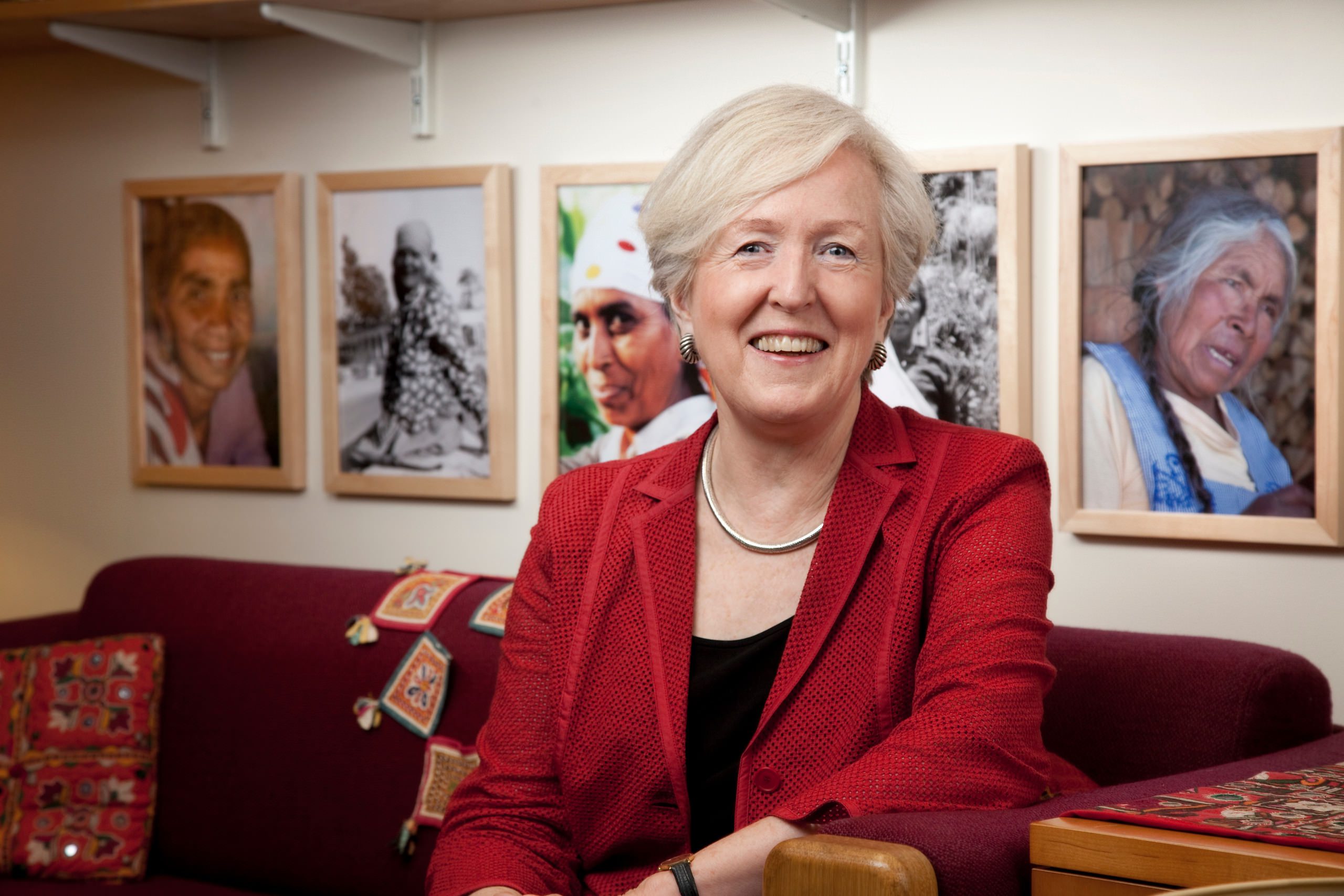
Marty Chen, one of the founders of WIEGO.
These workers should be seen as valid economic agents. They should be valued for their contributions, rather than stigmatized and penalized as they tend to be.
We seek to do that through five programs: two fundamental programs, the pillars, if you will, on voice and visibility is a program called Organization and Representation, where we find and strengthen and link up organizations of informal workers into sector-specific networks. The second is our Statistics Program, which is dedicated to improving official statistics on the labor force and on other economic phenomenon. We work with the International Labour Organization (ILO) and the United Nations Statistics Division and national statistical offices on that.
And then we have three programs on policy areas that need to be reframed, we believe, through the lens of the working poor in the informal economy. One is on social protection; one is on urban policies; and one is on law. And these programs, working together, generate knowledge. They build the capacity of the worker organizations to do advocacy, and they open spaces to engage in policy advocacy at the local level all the way to the global level.
Mittal Institute: Before we dive deeper into WIEGO, I wonder if you could take me back to your own journey. I know WIEGO has been a really pioneering organization in its own rights. How did you come to the idea of founding this network?
Marty Chen: The journey begins in my childhood, I would say. I grew up in India. I was a member of a third generation of a missionary family that lived in India and worked in India from 1916 when my paternal grandparents arrived there. And I grew up with informal workers. I grew up with cooks, caretakers, washermen, and gardeners, and milkmen, all the people who provided the goods and services that middle-class people needed were all informal. And many of these, in our lives became members of the family, such as the washerman up in the mountains that we still see, because we have a family home there. He once said, “We ate salt from each other’s tables; we are one family.”
I was a member of a third generation of a missionary family that lived in India and worked in India from 1916 when my paternal grandparents arrived there. And I grew up with informal workers.
So I grew up with informal workers. And then I managed to get my medical doctor and public health husband to South Asia, and we lived in what was East Pakistan, then Bangladesh, for most of the ’70s. And we lived in New Delhi for most of the ’80s. In Bangladesh, I worked with this remarkable NGO called BRAC. And I helped start and lead its women’s program during the 1970s. And so when I was asked to be Oxfam America’s represetnative in India, I just expanded and built on that work in Bangladesh and had a portfolio of grants for women’s economic empowerment. And at that time, I began to work very closely with SEWA, with the Self-Employed Women’s Association.
We came to Harvard in 1987, and I brought with me this grounded knowledge and experience of the informal economy and began to put it into more academic frameworks. But I was quite taken aback, frankly, that the mainstream economists saw the informal economy as somehow problematic, as either too fuzzy or too messy to be meaningful, or more. They saw it as non-compliant, non-productive, illegal, black. And so I determined that there had to be an alternative narrative, because from my perspective and experience, in a region where 90% of all workers are informal, that the perspective of the mainstream economists really applied only to a very small part of the informal economy. And most of the informal economy was working poor people trying to earn an honest living in a very hostile legal and policy environment, in large part because of those negative stereotypes.
And as Ela Bhatt, the founder of SEWA put it, “Statistics in the hands of workers is power.”
In the 1990s, I partnered with SEWA in India, Renana Jhabvala in particular, and with what was called UNIFEM at the time, now UN Women, on a project to document the struggles and campaigns of informal worker organizations in South Asia. The project resulted in a book called, Speaking Out, that was a documentation of these organizations and their struggles in South Asia. And in the process, we submitted a proposal to the UN to do something about the informal economy, but there was very little pickup. So we applied to the Rockefeller Center at Bellagio, Italy, for what they then called a team retreat, and we brought together 10 people who had worked on the informal economy for many years, probably a collective total of 200 years. We met to discuss how to address these stereotypes that were so negative and to build on and recognize the fledgling organizations of workers.
A precipitating event before the Bellagio retreat was that I was asked by SEWA to compile data on home-based workers around the world for their campaign for an ILO Convention on home-based work. And I worked with two colleagues, one a student at the Kennedy School, and we collected whatever data we could find from ad hoc surveys, and they used that in the campaign. We decided that the joint action of organizations of workers and people who did research and statistics, along with organizations like UNIFEM, was really the way forward. And as Ela Bhatt, the founder of SEWA put it, “Statistics in the hands of workers is power.” So that was really the final precipitating event that led us to the Bellagio retreat at which we planned what is now WIEGO. We thought it would be a project. We had no idea that it would grow into a global movement.
Mittal Institute: You’ve met so many informal workers across the globe in this time, could you tell us a story about an informal worker or group that really helps bring to life some of the issues and the challenges that informal workers face? Is there a story that you remember from your time that you think would help illustrate the real challenges on the ground?
Marty Chen: There are so many stories, and they all speak to the resilience of the workers. But I’ll choose one from Latin America, because everyone will assume I would choose one from South Asia. This was in Bogota, Colombia, in 2008, where WIEGO and others were hosting the first-ever international conference of waste pickers. I had lunch with Sylvio, the co-leader of the Association of Recyclers (Recicladores in Spanish) Bogota during the conference, and I asked him his life story. And briefly, here’s what he told me. He and his family were from the plateau in Colombia, and there had been an epidemic, so his parents moved to Bogota with him and his sister (he was about 13) to avoid the epidemic. Shortly after they arrived, his father abandoned the family, so he dropped out of school and started panning for metal to resell. He would go down to where the sewage would come out of the city into a river. And he would pan to find metal coins and bits of metal that he could sell. And he graduated from doing that to working on a landfill with other waste pickers, where they were experts at reclaiming from landfills and open dump sites the recyclable waste that has value in the market.
He worked for some time alongside his fellow workers and began to organize them. They collected all the glass that they had reclaimed in a bundle or a heap to the side of this landfill. And when they had enough glass to make it worth their while, they hired a truck and loaded the glass onto the truck. They then put a mattress on top for them to sit on and had the truck driver take them to the city of Medellin, where there were glass factories. They sold the glass they had accumulated, and it was the first time that they realized they could operate in the market. And this led him and his equally remarkable wife, Norah, who is a third-generation waste picker, to form this Association of Recicladores Bogota and be part of National Association of Waste Pickers in Colombia. And there is much to follow. They have now gotten over 40 cities in Colombia to pay waste pickers for their collection and recycling services, but that is a 25-year history that I can’t go into now!
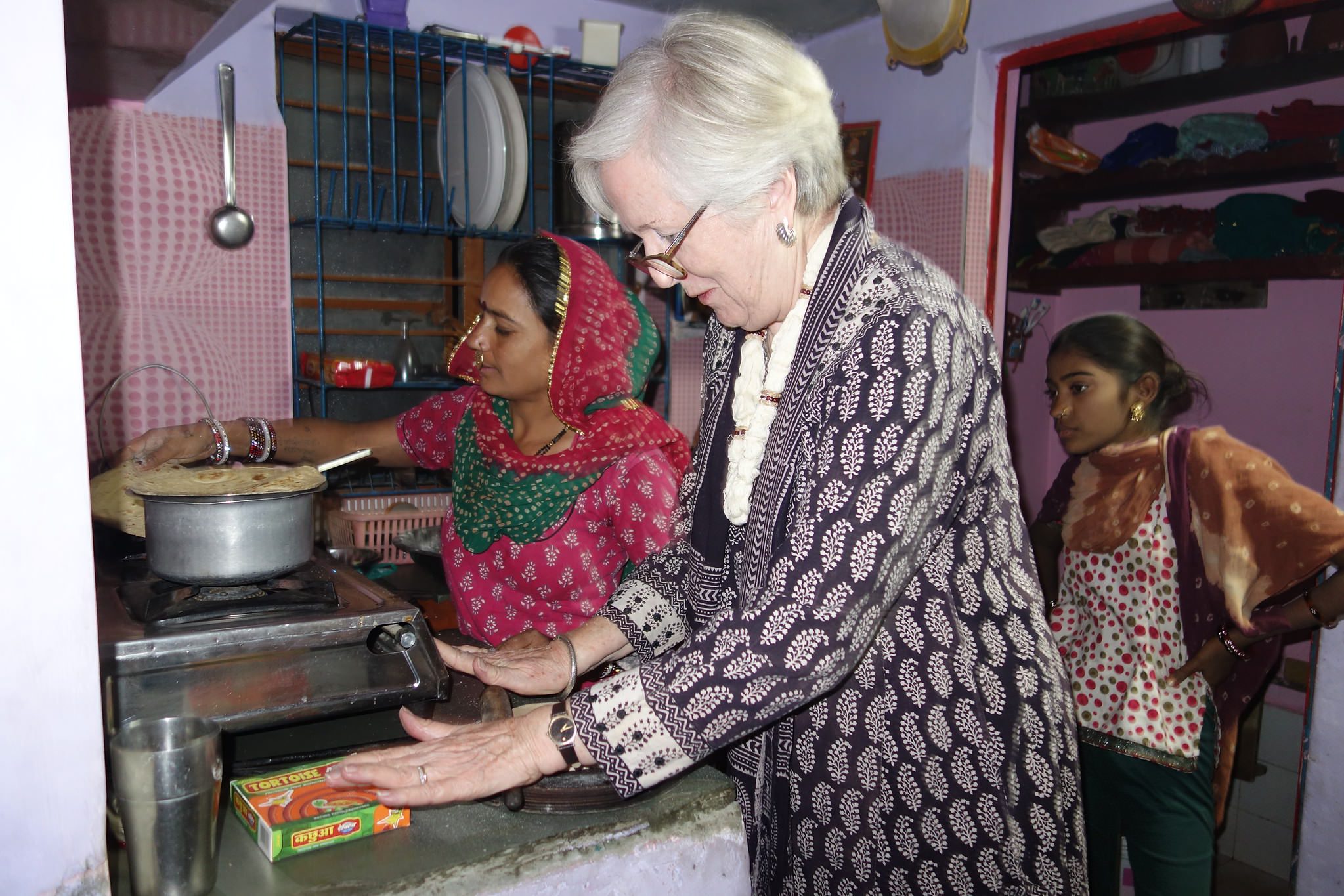
Mittal Institute: What are some of the main challenges informal workers face on a global scale? What are some of the common themes that you hear?
Marty Chen: Well, I can turn it into what their core demands are, because we hear from them what their core demands are. And the first core demand is for recognition. It’s for that validity that I talked about for recognition that they are legitimate economic players contributing to their societies – contributing to the economy, contributing to the formal economy – because they provide goods and services. And in the case of waste pickers, particularly, they contribute to reducing carbon emissions by reclaiming waste from landfills and dump sites and streets and households. So that recognition and the dignity that comes with that, that’s so fundamental to them, because they are treated so often as undesirables by the elite public and the policymakers.
A second core demand is for some form of social protection, because by definition, informal workers don’t get it through their work. And this is not just social assistance and small amounts of cash transfers, but also more fundamentally social insurance, for their health insurance and their pensions in old age. They also want their organizations to be recognized and have a seat at the policy table, because they’re excluded from any rule-setting policy making processes.
But then the demand begins to differ by the different groups. So you could broadly divide them between those who work in public spaces, and those who work in private homes. So the ones primarily in public spaces that we work with are the street vendors and the waste pickers. And the street vendors, of course, they want a secure location to vend, preferably in a central public space near the flow of customers – not in the periphery of the cities, but centrally located, close to the central business district. And the waste pickers also want their routes for collecting and their sorting sites recognized.
For the two groups that work in private homes, one is the domestic workers, and their main issue is mainly with the employer and the hiring contract that they have. Another group is the home-based producers. I should hasten to add that in South Asia, around one-third of all women workers are home-based. In India, one-third of all manufacturing units are home-based. So people who work producing goods and services from their own homes need some kind of secure tenure for their homes. They need the basic infrastructure for their homes: services, water and sanitation and electricity to make their homes viable workplaces. And they have to deal with the market if they’re self-employed, and they have to deal with the contractors if they’re subcontracted. So they have a range of issues depending who they are, where they work, what goods and services they produce.
A great deal of WIEGO’s work is to get the statistics on the different groups, but also to generate knowledge about the particular constraints and risks that the different groups face. And a primary demand overall, is please “do no harm.” You know, there’s so much talk in policy circles about job creation. And meanwhile, we are destroying livelihoods because we are doing harm in cities are doing harm, governments are doing harm. So the first request is please do no harm. And this is particularly poignant during COVID because we have done a longitudinal study in 12 cities around the world, and we found what the ILO had predicted that around 80% of the 2-billion informal workers worldwide would be badly affected: an estimated 1.6 billion.
With the lockdowns, the livelihoods of informal workers came to a screeching halt. There was some relief, there was a response, but it tended to be for one or two months with some food aid, some cash, but not a lot. And then there was government fatigue with relief, but the crisis has continued into 2021.
With the lockdowns, the livelihoods of informal workers came to a screeching halt. There was some relief, there was a response, but it tended to be for one or two months with some food aid, some cash, but not a lot. And then there was government fatigue with relief, but the crisis has continued into 2021.
While the ability to work has slightly improved, the earning levels are still very low and the relief fatigue has set in. And I should hasten to add that while informal workers were seen as targets for relief, they are not part of the economic recovery plans. The economic recovery plans are targeted at small and medium and large enterprises. But most of these workers are in single-person operations or small, family units. I would say that almost all recovery plans, exclude them, so they are not part of the recovery plans. And yet, we’re convinced, that you have to build back the economy from the base to have a robust recovery and to get back on the path to reducing poverty and inequality, because both poverty and inequality have greatly expanded during the COVID crisis.
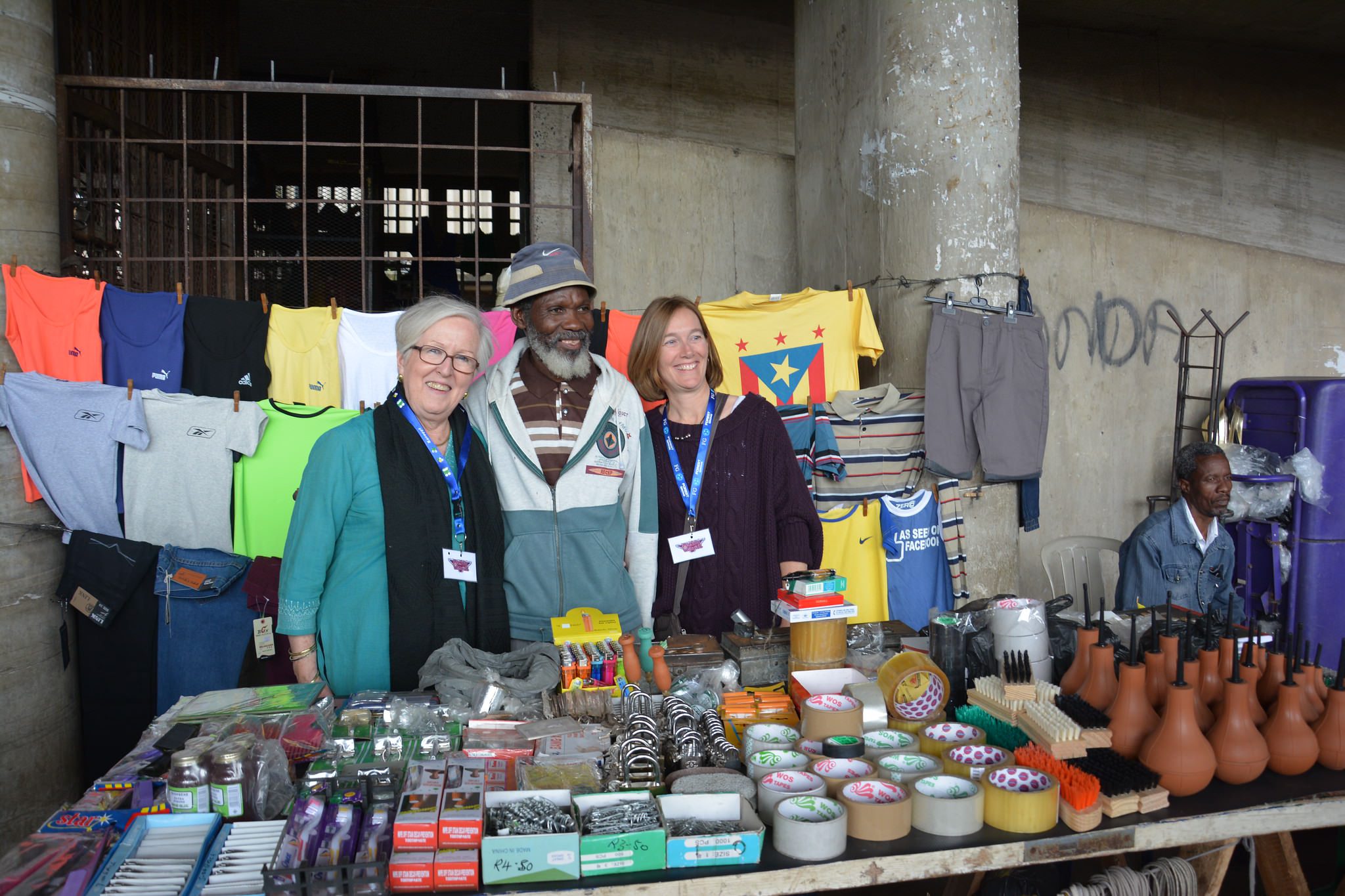
Mittal Institute: The informal economy is the economy in a lot of Global South countries, so how does this happen that informal workers get excluded from recovery plans?
Marty Chen: That’s a good question. It’s central to what we’ve been trying to do for 25 years. WIEGO is now 25 years old or will be in April of next year. And it’s a puzzle to me that when you look at the majority of workers, the majority of enterprises, the majority of economic activity, everywhere, except the developed countries, they are excluded from economic plans and, now, economic recovery.
At best, they are targeted with some labor protections or social protection: there’s a growing movement for universal social protection. But on the economic policy side of the equation, they are hardly there at all, and I think it’s because of this mainstream notion in economics, that they are a problem. Originally, economists thought that the informal economy would go away with industrial development, which of course it hasn’t. And modern capitalism is generating more informal employment, not less.
And my retort is what is more perverse is that you leave out 90% of your workers and enterprises and activities from social and legal protections, and from your economic plans and policies, or you create a perverse incentive for a few to remain informal?
Another assumption is that the informal economy is a drag on the economy. And there’s also a related assumption, that if you do things for informal workers, it creates a perverse incentive for them to remain informal. And my retort is what is more perverse is that you leave out 90% of your workers and enterprises and activities from social and legal protections, and from your economic plans and policies, or you create a perverse incentive for a few to remain informal?
And so that’s been a huge challenge for us. It’s a mindset problem that people see them in this particular way. There was a recent publication by the World Bank that talked about informality. They never talked about the informal economy; they never said informal workers, only informality. They reported a correlation between informality and bad governance, underdevelopment and COVID impact. And they went so far as not just to talk about correlation, but essentially causation, stating that informality is the cause of all these bad things. And so we’ve made progress in certain mindsets and thinking, but we have a long way to go.
But I would say what’s really encouraging is that in 2018, we had the first-ever global estimates of informal employment, due to 25 years of work between the WIEGO’s Statistics Program and the ILO’s Statistics Department, as well as the UN’s statistics and national governments. Then two years later, for the first time with the first global crisis, we had a recognition that the informal economy was worse hit. In all previous recessions, it was assumed that the informal economy provided a cushion to fall back on, a cushion for formal workers who lost their jobs and then could find work in the informal economy. But nobody was asking what happened to the informal workers. And we did a longitudinal study of the impact of the global recession in 2008-2009, which showed that there is no cushion for the informal workers to fall back. With this crisis, there is recognition of this fact. And there are now some ILO conventions and standards for informal workers, and urban informal livelihoods were integrated into the New Urban Agenda of UN-Habitat. So there’s been a lot of progress made in mainstreaming an alternative view of the informal economy. But we still have a way to go.
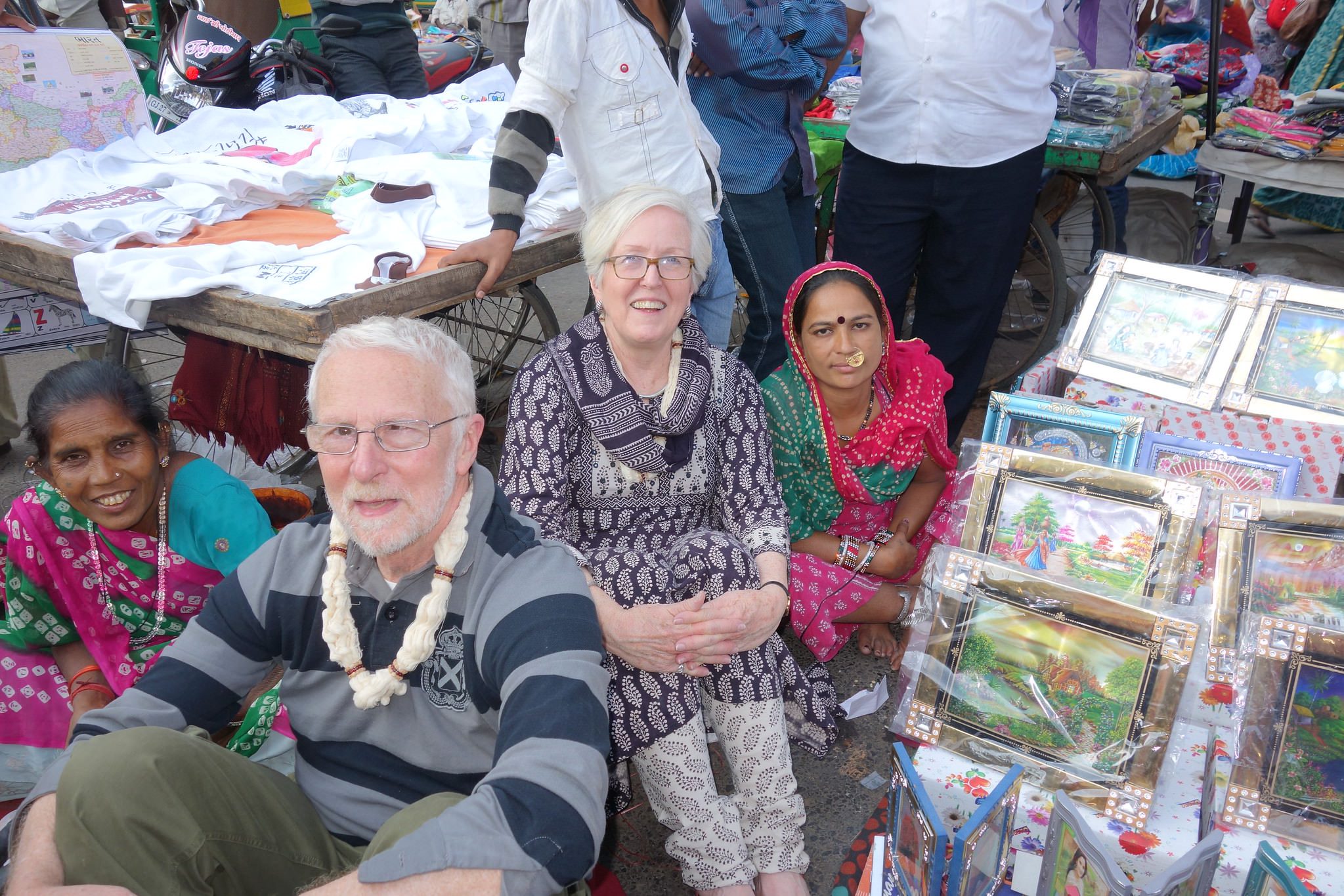
Mittal Institute: WIEGO received a recent grant from the Ford Foundation to support an equitable economic recovery. Could you tell us about what an equitable economic recovery from the pandemic means?
Marty Chen: Well, yes. First, I want to thank the Ford Foundation, because they have been a core funder of WIEGO from the beginning. And we’ve relied on them and a couple of other key core funders to be able to grow, not just the organization of WIEGO but the network. And the grant is for the network. It’s for the global movement of informal workers, so it will be divided between four large-sector networks of informal workers: domestic workers, street vendors, home-based workers and waste pickers. And it will also include funds for WIEGO to continue to do what we’ve been doing, which is helping with capacity building for advocacy, helping with communications, helping coordinate a global movement campaign for just recovery from below.
For us, “Building back better” – to use the Biden slogan – needs to start with the base of the economy, not the tip of the economy.
For us, “Building back better” – to use the Biden slogan – needs to start with the base of the economy, not the tip of the economy. And I hasten to add that during COVID, shareholder capitalism has done very well. But the base of the economy, the working poor people, are in a deep hole, because they live off their daily earnings – their work stopped, their earnings stopped, and they have gone deeper into debt. They’ve depleted their savings, and in many cases, have pawned or sold productive assets. So they have gone deeper into a hole and are still struggling to put food on the table, while shareholder capitalism has done very well.
We need to start at the base. We need to start and rebuild where the majority of workers, the majority of enterprises, and the majority of economic activities are and to build on the recognition that did come with COVID. There were two recognitions. One is the basic needs that all of us rely on and the breakdown of supply chains. We’re all very conscious of the basic needs, and also some of the consumer items that we feel are important. We’ve come to realize the importance of those in our lives, and the importance of people who provide essential goods and services. Notably starting with the health workers, who have gone beyond the call of duty, and many of whom, not the doctors and nurses, but many of the other medical personnel are informally employed. Most of the people who run the ambulances and the paramedics who are on the ambulances, they don’t get health insurance and they are paid very little. We know that the provision of essential goods and services, the production of food, the processing of food, the delivery of food, the last-mile delivery of food by street vendors, is all done by informal workers.
We’ve banged pots and pans and we’ve clapped, and we’ve sung for the essential workers, turning the lockdowns and restrictions, but are we going to build them into the recovery? That’s the challenge.
We’ve banged pots and pans and we’ve clapped, and we’ve sung for the essential workers, turning the lockdowns and restrictions, but are we going to build them into the recovery? That’s the challenge. And so long as we treat the informal as sort of a social policy problem and not an economic policy opportunity, we will not have a robust recovery and we will not reduce poverty and inequality.
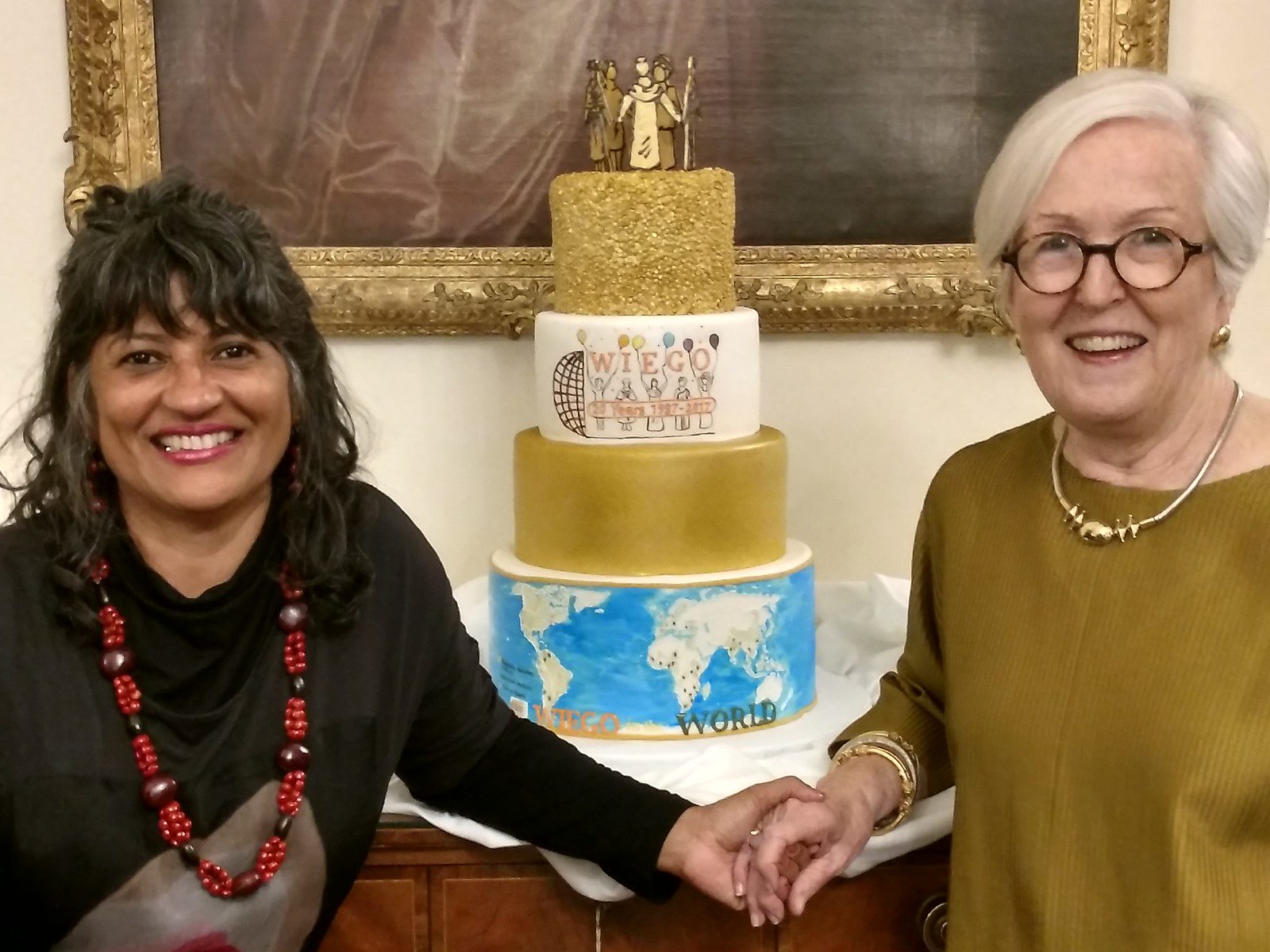
Mittal Institute: On a personal level, what drives you and motivates you to keep going with this for decades, really committing to this work? What are some of your own personal drive and aspirations and hopes here?
Marty Chen: Well, what drives me is the people themselves, the informal workers that I’ve met around the world. I am an anthropologist by training, so the way I learn, the way I do inductive theory building, is by going and sitting on mud floors, if you will. That’s what I’ve done all my long career, beginning in Bangladesh in the 1970s. It’s the people, their resilience, their charisma, the struggles that they have fought, their determination to keep going against all odds, that’s definitely what drives me. It’s how I learn and how I think.
Along the way, with the WIEGO network, we are all committed activists, many of us are activist-academics, others are activist-lawyers, others are activist-organizers. But being part of a family of committed activists of different skills and talents and backgrounds has also been very inspiring. It’s interesting how we’ve all come together around the cause and have developed technical capacity in a whole range of areas to build the knowledge and do the policy analysis and the policy advocacy that’s needed, and doing it all the time with the organizations of workers.
And the organizations are also inspiring. I’ve been in on the beginning of some of them and have seen them go from strength to strength. I’ve been with them when they were small and struggling and they’re now on the global stage. That’s why it was particularly deeply heartfelt and moving to see the leaders of these networks featured in Time magazine.
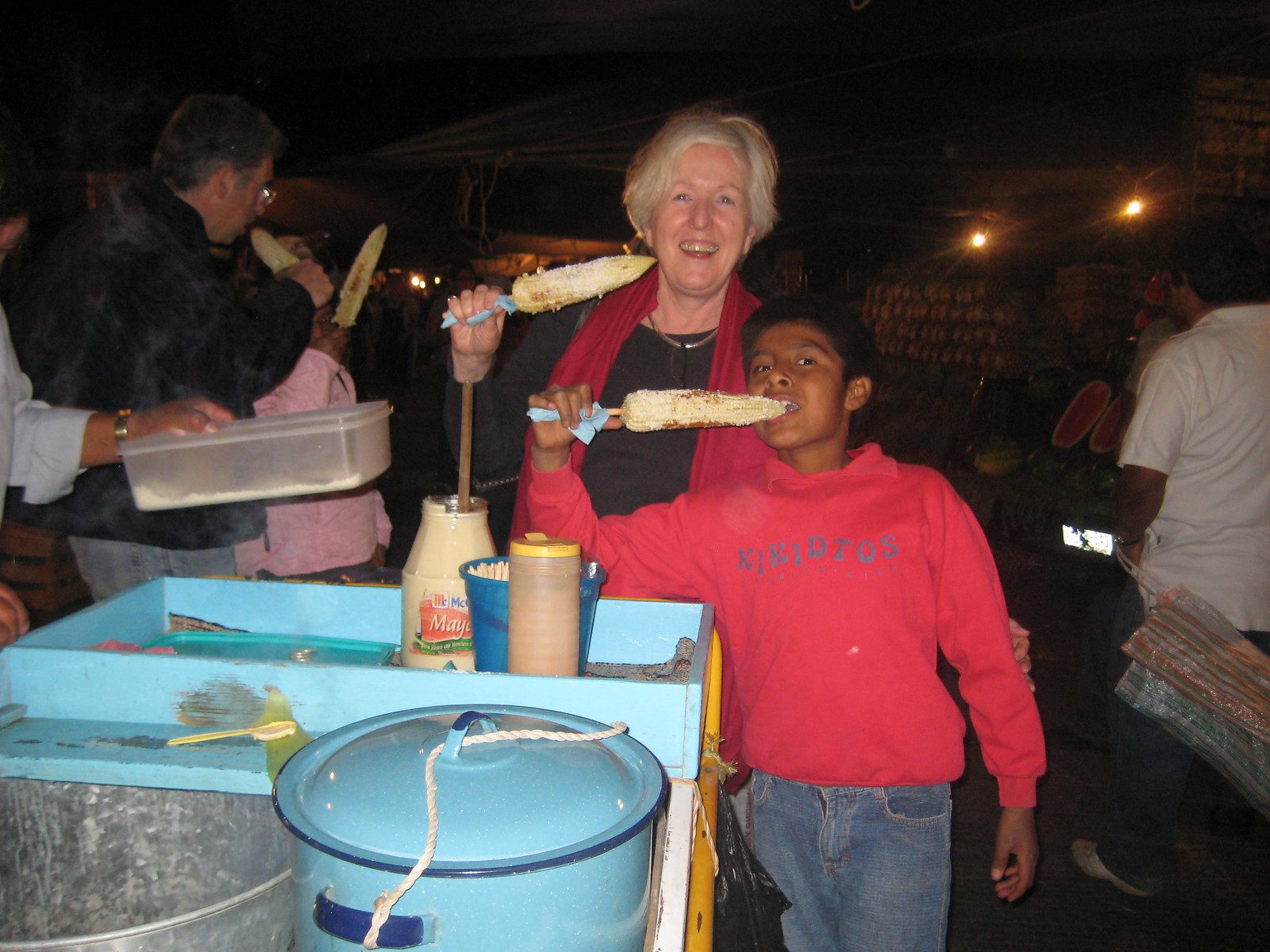
Mittal Institute: Over the last 20 years, have you seen any significant differences in who an informal worker is or what their struggles are?
Marty Chen: Well, if we start with the four groups that WIEGO has dedicated itself to – the domestic workers, the home-based producers, the street vendors and waste pickers – at one level their lives and who they are and who joins those sectors is still very much the same. But there are new forms of informality or informal work that are also emerging even within those sectors. There are digital platforms for contracting their goods and their services that they are trying to struggle with, because sometimes the platforms help and sometimes they hinder. And there are new categories of platform workers, gig workers, who are mainly informal. The definition of informal being that these are workers whose enterprises are small and unregistered or their employment arrangement is informal, as they do not get any contributions from employers to their social protection. Uber drivers, for example, are actually informal. So modern capitalism is generating modern forms of informality, which go alongside the traditional historic forms. Historically, a subcontracted worker, a dependent contractor, are the industrial outworkers who work in the global supply chains. And the new form is those who work for the digital platforms. We’re seeing informal employment in new guises, but the traditional categories, especially in the Global South, are still out there, still struggling.
This is a critical moment for the workers, because the COVID moment is an inflection moment.
We have pockets of victories, and we have hope that we can have more widespread victories for them. This is a critical moment for the workers, because the COVID moment is an inflection moment. The world, the global community, has to decide whether we’re going to revert to the bad old deal for informal workers, where they were stigmatized and penalized, or, and there’s a strong likelihood of this, that we go back to a worse normal. Because in the name of public health in the name of economic recovery, governments around the world are destroying the physical infrastructure of street vendor markets or waste pickers sorting sites. They’re closing dump sites, where informal waste pickers work. They are trying to get rules and regulations for factories to have fewer shifts so that they don’t have so many workers coming through for public health reasons. In the name of public health and economic recovery, governments are doing what they long wanted to do, which is to destroy the informal economy.
This is a clear moment to make a choice. It’s a moral choice. Who are we supporting in our cities? What vision of cities do we have?
Take the city of Dakar in Senegal. There was a large, African market, much celebrated, where many people worked, and many people went to buy goods. And it was in a central location where the government wanted to build a mall, so they used COVID as an excuse to completely destroy the market in order to build a mall. But a mall and an open market cater to completely different interests. And it’s real estate and elite customers on one side, and it’s the middle class and working poor customers and the informal traders on the other side. This is a clear moment to make a choice. It’s a moral choice. Who are we supporting in our cities? What vision of cities do we have? Is it Shanghai, where you can’t find informal workers? They are there but you can’t see them. Or is it Hanoi, where they’re there cheek and jowl just operating side by side? Or Mumbai, where they operate side by side and with a fair amount of tension, but at least it’s the formal and informal sharing spaces at different times of the day, operating sort of organically together.
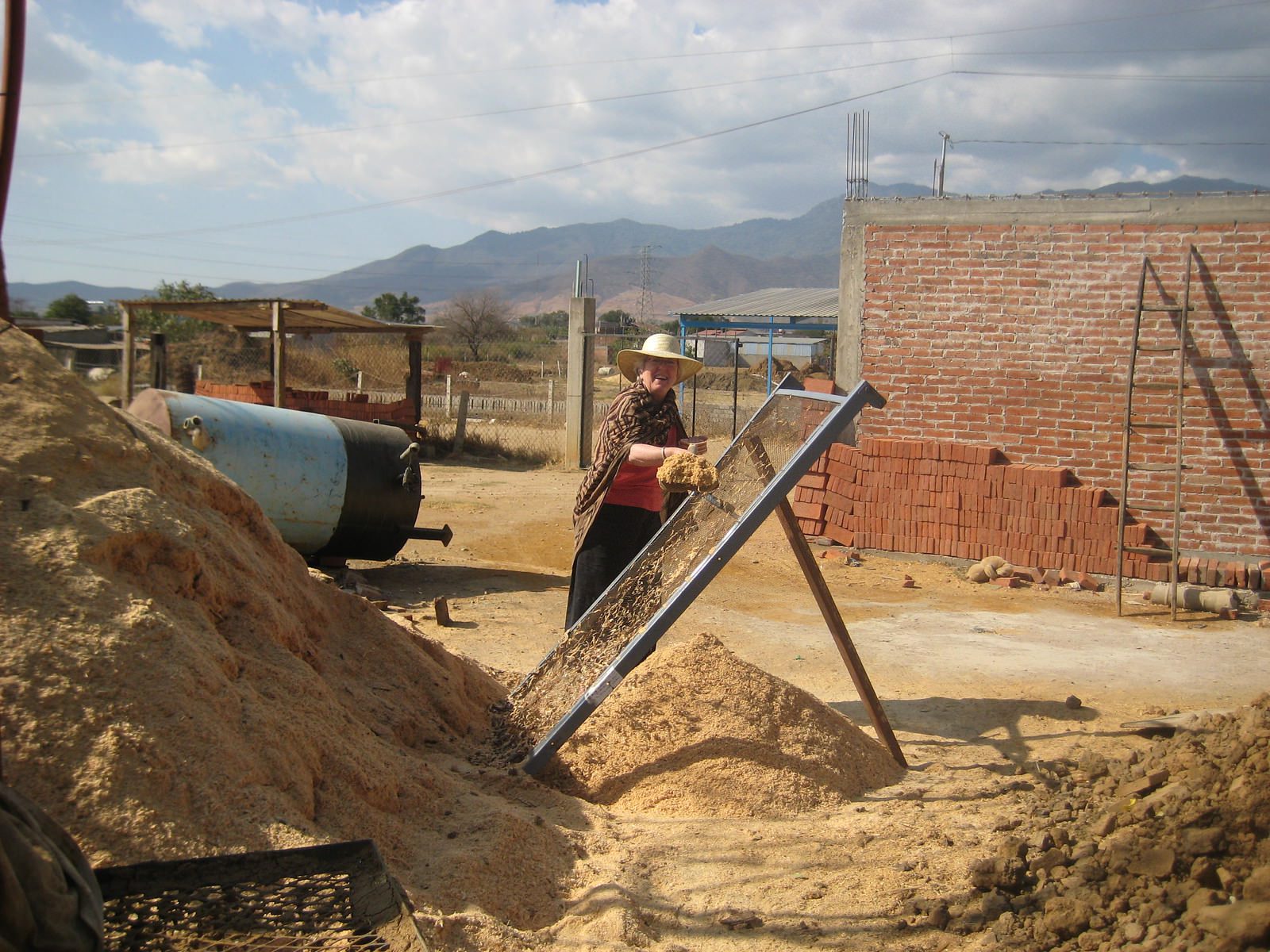
Mittal Institute: And lastly, since we’re the Mittal Institute here at Harvard, and there is a long history of WIEGO at Harvard with many connections, would you just like to elaborate on WIEGO’s connection with Harvard?
Marty Chen: Thank you, I want to express my gratitude to the Harvard Kennedy School. When I came to the Harvard Kennedy School in 1987, I had been working for two decades in Bangladesh and in India on the informal economy. From the Harvard Kennedy School, I started a cross-Boston seminar series on the informal economy with economists and others from Boston University, MIT, and Harvard, and I was able to continue to do research on the informal economy. Once WIEGO was founded a decade later, which was 1997, I was connected with the Hauser Institute for Civil Society at the Kennedy School, and I was allowed to build a secretariat, and “incubate” WIEGO, if you will, at the Hauser Institute. WIEGO had a Secretariat at Harvard for two decades, as long as I was the international coordinator.
This remarkable trade union of nearly two-million women informal workers in India has among its top leadership two Harvard College graduates, and the founder got an honorary degree from Harvard, so strong connections.
When I handed over to my successor in the beginning of 2018, we closed the Secretariat, but I still teach at the Harvard Kennedy School, and I’m still a full-time paid Senior Advisor to WIEGO. It’s been very important to us to have a base at Harvard, and we are grateful to the Kennedy School for that. It has allowed me also to teach about the informal economy, and I have done so both through my own course at the Kennedy School, but also through joint courses that I taught with Rahul Mehrotra, who is also from the Mittal Institute and at the Harvard Graduate School of Design. Now we have a second course that the two of us co-teach with Bish Sanyal from MIT’s Urban Studies and Planning Department. I’ve been able to teach on the topic while at Harvard, and all of this has been hugely important to WIEGO. And for that, I’m very grateful.
Mittal Institute: And some founders of WIEGO were also involved with Harvard?
Marty Chen: Among the founders of WIEGO, one of them, Renana Jhabvala, did her bachelor’s at Harvard College. The other co-founder from SEWA was Ela Bhatt, who got an honorary degree from Harvard. Also, Mirai Chatterjee, another top leader of SEWA, the Self Employed Women’s Association of India, is a graduate of Harvard College. This remarkable trade union of nearly two-million women informal workers in India has among its top leadership two Harvard College graduates, and the founder got an honorary degree from Harvard, so strong connections.
